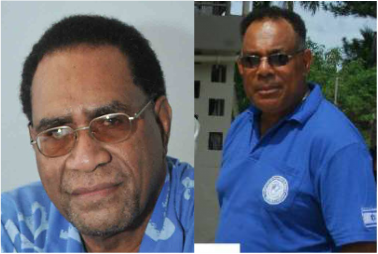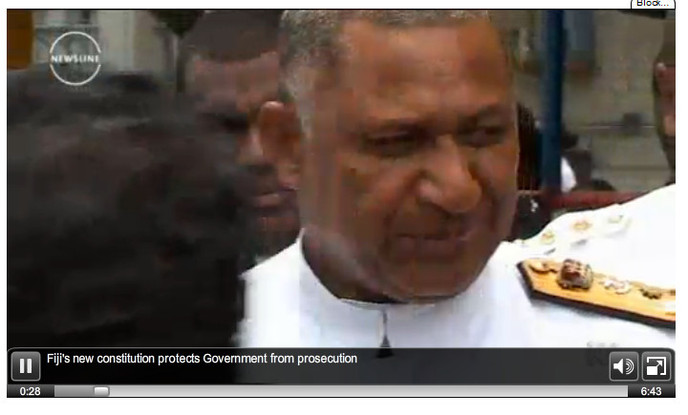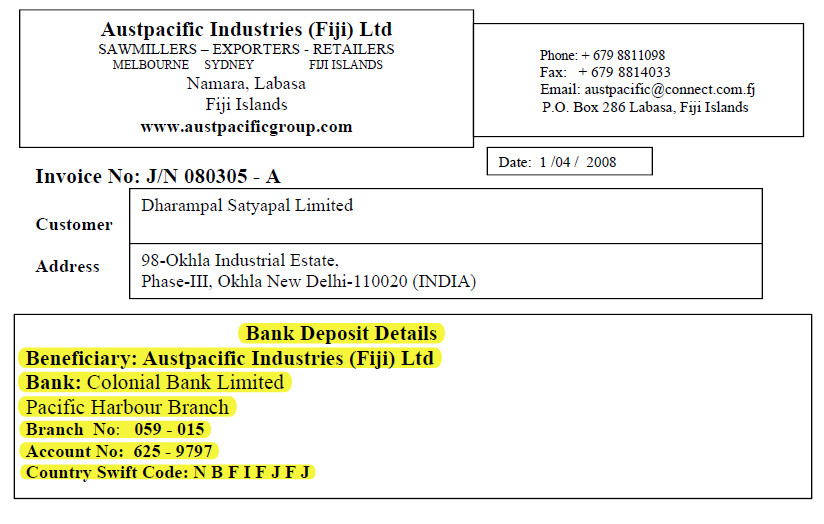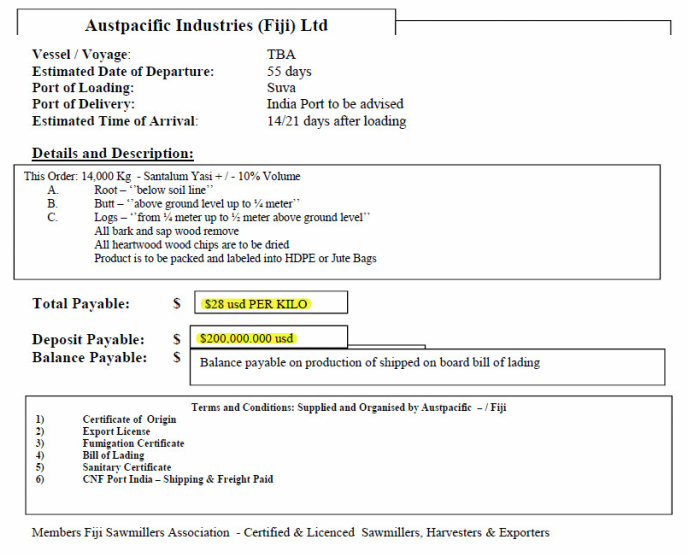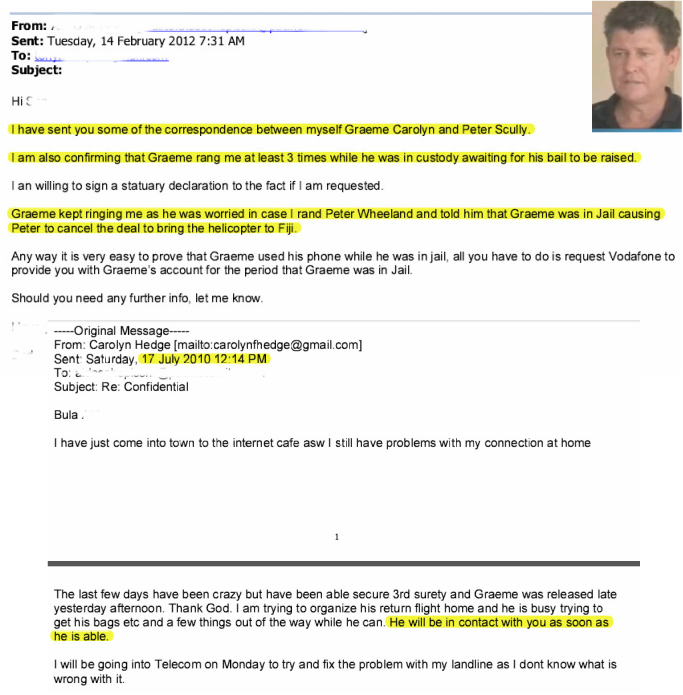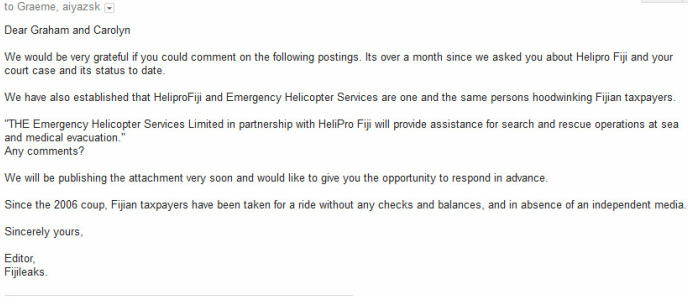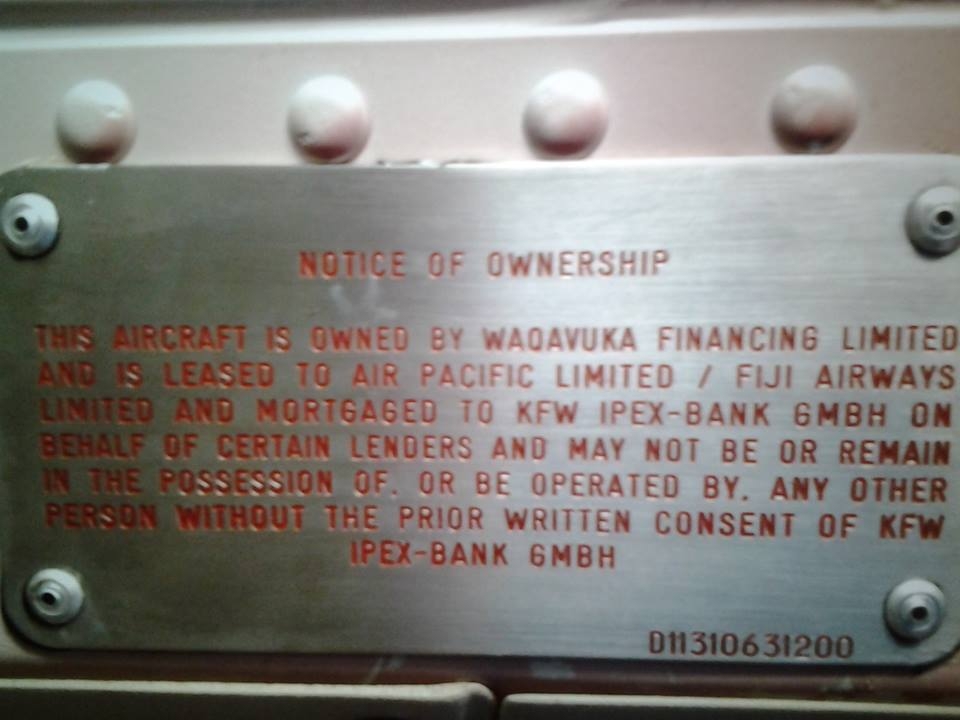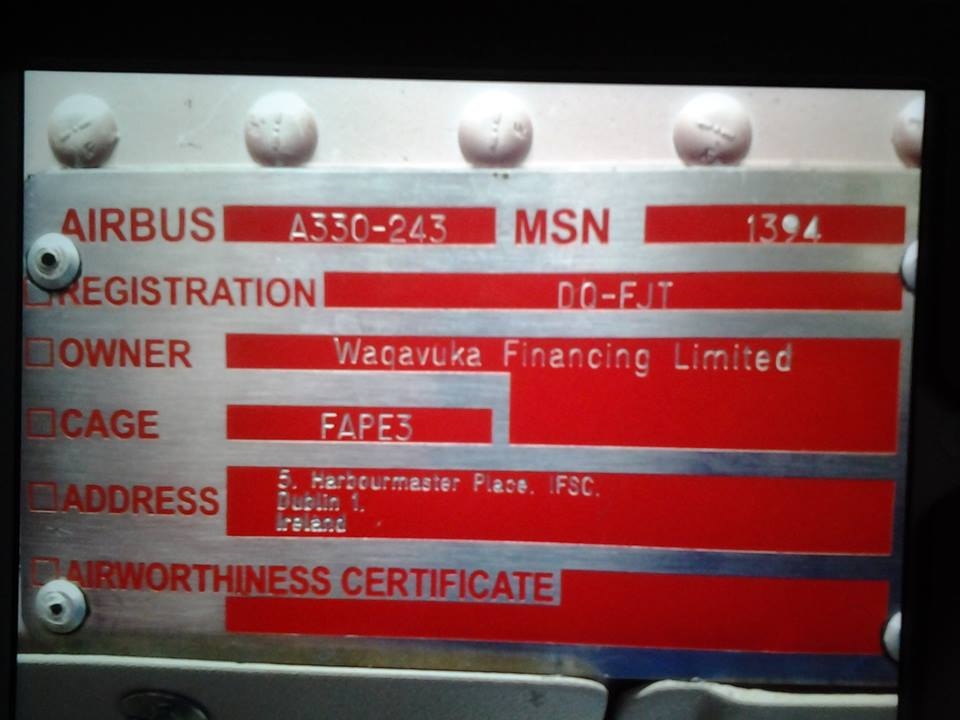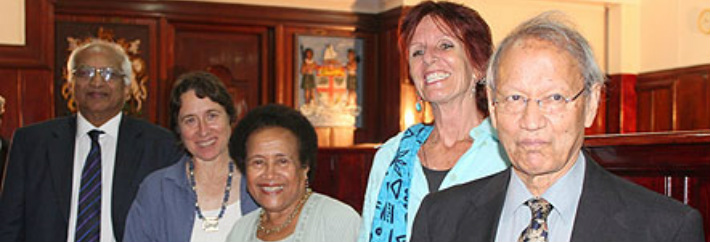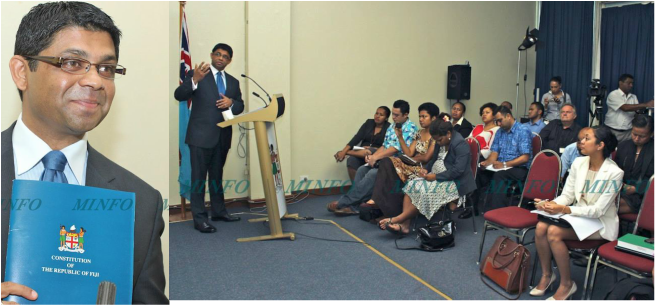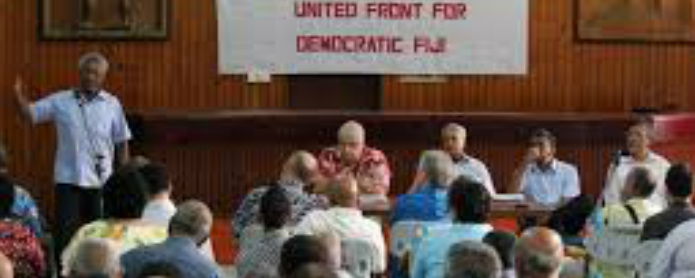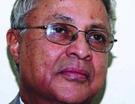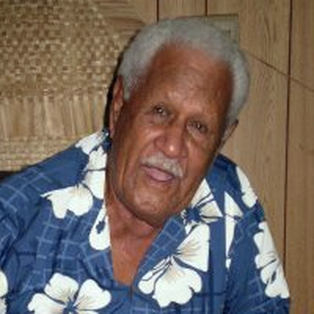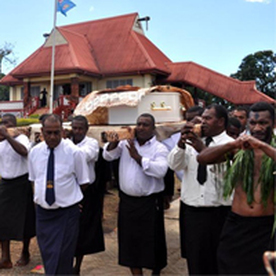|
0 Comments
Professor Wadan Narsey
The Bainimarama Regime has now released its 2013 Constitution for Fiji (2013 BKC). While many political scientists will compare it to the aborted Ghai Draft Constitution, the more appropriate comparison should be with the 1997 Constitution which this Regime claims to have abrogated. [Recollect the 2001 judgement by Justice Anthony Gates (current Chief Justice) that constitutions cannot be so abrogated, and recollect the 2009 Court of Appeal judgement that the Bainimarama Regime was unlawful (and so presumably is in no lawful position to hand down any constitution to us, except by force)?] But Fiji will, as always, be pragmatic and not let a little legal nicety get in the way of getting on with our lives and putting bread on the table. (Some of course want the cake and the icing as well). The 2013 BKC states many good governance principles for the state executive, the legislature and the judiciary, many of which unfortunately this unelected Regime has never applied to itself, these last seven years. Unfortunately also for the long run, the good elements are negated by fatal weaknesses in the process of the making of this constitution, allegedly unchallengeable clauses on total immunity, the absence of any requirement to make past decrees consistent with the 2013 BKC, the removal of even any symbolic attempt to discourage future coups, and lack of respect for the UN Declaration on the rights of Indigenous Peoples. Readers may wish to browse through my January 2013 article where I suggested (somewhat correctly in hindsight) that the Bainimarama Regime's real priorities would be revealed by examining where their eventual constitution differed from the Yash Ghai Commission Draft http://narseyonfiji.wordpress.com/2013/01/14/trashing-the-ghai-constitution-the-positives-14-january-2013/. It is sad that Fiji will painfully waste many more "nation years" in the future, revising the 2013 BKC to remove its weaknesses (Part I of this article). Nevertheless, the 2013 BKC presents a flickering glimmer of light at the end of the tunnel with its electoral system, which may result in an elected parliament and government by September 2014, if the military referees think of the nation instead of their pockets (Part II of this article). Part I The 2013 BKC in general I will not repeat some important criticisms that other writers have already made (such as the lack of adequate separation of the executive powers from the legislature and judiciary) but, for the record, focus on obvious weaknesses in the process and key changes from the Ghai Commission Draft. The flawed process of constitution making The first clause of the 2013 BKC "we the people of Fiji... hereby establish this constitution for the Republic of Fiji" is blatantly false. It is as false as the first clause of their earlier bible, The People's Charter, which stated that the 1997 Constitution would be supreme and strengthened: that promise was negated before even the ink on the Charter document had dried. The 2013 BKC is also being imposed by the Military Regime after superficial "consultations" and will be rubber-stamped by the unelected Regime's President and then heroically "displayed" to the country by the architects. "We the people" will not be asked to approve the 2013 BKC, either through a national referendum or by the first elected Parliament, or even by a bogus national signing exercise by which the Charter was alleged approved by the nation. It is therefore a farce to require that any changes to the 2013 BKC must require a 75% majority in the elected Parliament, and following that, a 75% majority in a referendum. While naive in international law and realpolitik, the 2013 BKC mocks the "will of the people" by stating that no changes at all may be made by any future elected Parliament, to the immunity provisions stipulated in this 2013 BKC. But the icing for the Regime on this constitutional cake is that this unelected Regime may itself make any changes it wishes from now till 31 December 2013, by a Decree signed by the unelected President- just in case the architects have not thought of everything. The immunity provisions The immunity provisions appear to be the same as in the Ghai Draft Constitution, but while the popular view continues to be that the immunity covers the events from December 2006 coup to the September 2014 elections, the immunity significantly starts from 2000. The 2013 BKC restates the immunity granted by Decree 18 of 2010 (Limitation of Liability for Proscribed Political Events) which covers the military, police and prisons staff for events associated with the 2000 attempted coup and mutiny, and also, "all dialogues, discussions, correspondence between the Fiji Military Forces and the Government between September 2001 to December 2006". The significance of this 2010 Decree may be read here: http://narseyonfiji.files.wordpress.com/2012/12/g-who-is-responsible-for-the-coup-culture-and-how-eliminate-it.pdf This Regime is hypocritically unconcerned that their courts are finding other national leaders and politicians guilty and sending them to jail for what at worst are minor misdemeanours, while demanding immunity for themselves for unstipulated actions, for a period of 14 years (with one year of that immunity yet to come). What has been left out from Ghai The Ghai Commission was stopped from drafting clauses requiring that all past Decrees be examined and revised if necessary, to make them consistent with their Draft Constitution, if there was to be any continuity and consistency in the process of law and order in Fiji from 2006. The Ghai Draft had also recommended that cases already before the court (like the FNPF pensioners' case thrown out by a Decree) must be continued with. The 2013 BKC stipulates that all past decrees from 2006 must continue in force. The second exclusion is the Ghai Draft requirement that immunity not be granted for abuse of basic human rights (obvious conclusions to be drawn?). Third, the Ghai Draft required that the Regime give way to a caretaker government six months before the 2014 elections. Bainimarama, however, insists on continuing in office until the elections in which he will claims he will be standing, for a party yet to be declared. This makes a clear mockery of the claim that the elections will be fair given that he has been, and will continue dispensing taxpayers' funds left right and center, shades of all the vote-buying scams this country has previously seen. The fourth exclusion is the Ghai Draft requirement that immunity be only granted to those who took an oath renouncing their support of illegal regimes. (obvious conclusions to be drawn). The fifth exclusion is the Ghai Draft requirement that all members of the security forces (army, police and prisons) must take an oath that they would not obey unlawful orders from their superiors. These last two requirements no doubt reflected the Ghai Commission's legitimate concern to try to end the coup culture by explicitly discouraging the security forces from supporting future coups: military leaders cannot implement coups without their subordinates' support. Cynics would note, of course, taking these oaths has never discouraged any of the security forces (including all our former army commanders) from supporting coups and abrogation of constitutions- as the events of 1987, 2000, 2006 and 2009 clearly prove. The 2013 BKC does nothing to help in ending the coup culture. Nearly all the military officers, contrary to their promise in 2006 that "no military personnel will benefit from the coup", have significantly benefited from the coup- financially, in status and power, and comfortably continue to do so, even more than in previous coups. Some military (and civilian) Ministers are now enthusiastically declaring their willingness to stand for the 2014 elections, despite Bainimarama's 2006 pledge that none of his ministers would stand for any future elections. (yet another of his broken promises). Attack on rights of indigenous Fijians The UN Declaration on the rights of indigenous peoples, was verified by the General Assembly in 2007 and may be read here: http://daccess-dds ny.un.org/doc/UNDOC/GEN/N06/512/07/PDF/N0651207.pdf?OpenElement This declaration, while accepting the fundamental equality of all peoples, nevertheless noted that indigenous peoples the world over have suffered marginalization through colonialism, and recognized the need to respect and promote the rights of indigenous peoples affirmed in historical treaties and other constructive agreements with the state. The UN declaration encouraged states to enhance indigenous peoples rights through consultation and co-operation with them (and not by force) Article 5 states clearly that indigenous people "have the right to maintain and strengthen their distinct political, legal, economic, social and cultural institutions". Just these few references suggest that the Bainimarama Regime, through the 2013 BKC and recent decrees, is forcing many changes on the Fijian people and institutions in complete contradiction of the UN Convention on the Rights of Indigenous Peoples: abolishing the GCC, removing the term "Fijian" from the indigenous people's exclusive use, banning the use of Fijian names of political parties, etc.) In the long run, such changes are futile, as the collective wishes of the indigenous Fijians will ultimately triumph, ironically helped along by the 2013 BKC electoral system (Part II of this article). Part II An interesting electoral system The Bainimarama Regime has claimed that they will hold elections in September 2014, according to their electoral system, based on proportionality and "one person one vote one value". Of course, this Military Regime has broken many promises before and they may do so again with this one, or even follow Plan B formulated by one Einstein in the Regime (no prizes for guessing who), which is to hold a bogus referendum to do away with the 2014 Election altogether. But if free and fair elections are held, leading to a representative parliament and accountable government, it will be a major improvement on the current situation: for seven years, Fiji has suffered a government whose practices continue to negate most of the good principles of accountability and transparency proudly stated in the 2013 BKC. The electoral system Although the vote counting process has not been exactly specified in the 2013 BKC, the proposed electoral system will apparently: (a) have only one national constituency in which all candidates will stand, and each voter will choose one candidate (with or without a party), with one vote per person. (b) add up all the votes of candidates, aggregating those with political party attachments, (c) elect Independents if they win at least 5% of total votes (d) give to each Party the percentage of the 50 seats (less Independents) equal to the percentage of votes received, provided the party wins at least 5% of the total votes (which will give them at least 2 seats immediately); (e) elect that proportional number of MPs from that Party, beginning with the person receiving the highest number of votes, and going down the list ordered by the number of votes received, till they have fulfilled that Party's quota. The Member of Parliament with the majority support of parliament would then become Prime Minister and form government. The weaknesses of the electoral system (if it is indeed as outlined above) will be that (1) there will have to be one massive ballot paper, with the names and symbols of hundreds of candidates, out of which some 500 thousand voters throughout Fiji (literate and illiterate), will (look for and) tick one name; (2) there will be no guarantee of local or regional representation of members of parliament.; (3) there is no guarantee of reasonable representation of women, youth and other minorities (as was in the Ghai Draft Electoral system with a Closed List); (4) If the bulk of the votes for any Party have been obtained by the "Leader" or a few candidates, then the last successful MP selected from that Party to fill the Party quota according to proportionality, may not have received any large number of votes at all- but this weakness prevails for all proportional systems based on open lists. (5) In the light of (4) above, the minimum requirement of 5% of all votes for Independents or political parties to be elected, is grossly unfair, considering that each of the 50 seats in the parliament would on average equate to 2% of the total votes. This rule will discriminate against small parties and Independents who could be important moderating influences in Parliament. (6) If there are small parties each obtaining less than 5% of total votes, then there will be the head-ache of "left-over" seats in Parliament, after the large parties had their preferential bite at the cherry. [eg if Party A has 50% of votes (hence 25 seats), and Party B has 30% of votes (and hence 15 seats), while the remaining 20% of votes are split between small parties each with less than 5% of the votes who get no seats, who gets the remaining 10 seats? But there is an easy arithmetic answer to this problem: ignore all the parties with less than 5% of the votes, Ha ha ha. So much for the equality of all voters!] (7) There is one critical weakness in the 2013 BKC which was also in the Ghai Draft Constitution: both threw out the Multi-Party Government provision of the 1997 Constitution, which guaranteed any party with 10% of the seats in parliament (here 5 MPs), to be invited into Cabinet. Won't it be ironic if Bainimarama's party ends up being a large minority party, without the majority to form government? No worries: we will have another coup. Ho hum. The mantra of "1 person-1 vote-1 value" Will the new voting system eliminate racial voting and establish "racial equality" as the Bainimarama Regime proudly repeats at every opportunity, like a mantra? I doubt it, and the 2013 BKC is even worse than the Ghai Draft which also tried to hide racial voting by rigging the size of the constituencies. Instead of having 25 single member open constituencies (as most political parties and others including myself had recommended), with another 25 to ensure proportionality from Closed Lists, the Ghai Commission Draft had four Divisions as constituencies, banking on the subterfuge that the voting results would therefore not reveal any evidence of racial voting (even if there was racial voting) (my recommendations may be read here): http://narseyonfiji.files.wordpress.com/2012/12/d-my-recommendations-for-the-electoral-system.pdf The 2013 BKC has gone one step further to stipulate just one constituency, so even more now, no one will know by examining the results, whether there is any racial voting going on: all that observers will see, is how many votes each candidate received throughout the entire country, from all voters, not their racial origins. But I suspect that racial voting will continue in full force, despite this Regime and umpteen grating TV advertisements calling everyone "Fijians". The reality is that after the voting fiasco is over, Parliament will comprise whoever is voted for by the voters: 56% of whom will be indigenous Fijians, 38% Indo-Fijians, and 6% Others: the ethnic proportion of Parliament will be roughly in that proportion. (BTW: check the ethnic composition of Bainimarama's cabinet). Despite the Bainimarama/Khaiyum mantra repeated daily that the new electoral system is going to ensure racial equality for Indo-Fijians, the reality will be that the proportions of Fijians, Indo-Fijians and Others in the next Parliament will be pretty much the same as in 2006. One crucial difference now will be that minority parties (for example those supported by mostly Indo-Fijian voters), will no longer have an automatic right to be invited into Cabinet, as they did under the 1997 Constitution. The Indo-Fijian supporters of Bainimarama can ponder on this interesting consequence of the 2006 coup which was alleged to be partly to protect their interests, apart from "cleaning up" the country (mind you, some have cleaned up)! Is it a New Ball Game? Despite the illegitimacy of the 2013 BKC and all its weaknesses, political parties will pragmatically contest the elections with the electoral system being proposed (as did Opposition parties after the 1990 Constitution was imposed on them). There are many fascinating national and regional political strategies that may be formulated for the 2014 elections, given the objective of obtaining the highest percentage of votes in the country, and forming a coalition government (if there are multiple parties in parliament with no one having the majority). If the old political parties are by some Regime skulduggery stopped from competing, a completely new political party will be formed within months, and be just as successful as the old ones, as the interesting magical instantaneous replacement of the SVT by SDL in 2001, clearly shows. There is certainly a new ball game in town, welcomed by the international community, with great relief. But then again, as has happened over the last seven years, if the military referees think that the elections results may not be to their liking, they may move the goal-posts again, or change the rules of the game, or even scrap the game altogether. But they can still go temporarily back to the barracks for R&R and have a welcome rest from the political war-zone and the hard work of governing the country, knowing that there is a clause in the 2013 BKC [131(2)] giving the military not only the responsibility for the defence and security of "Fiji and all Fijians", but also their "well-being", which they can always define themselves, as they have done for the last seven years. Note that when the military rejected the 2009 Court of Appeal judgement, they threw away the last lawful exit strategy the Fiji courts offered, remaining in control, all personally benefiting, while Fiji suffered for five years with the worst economic growth record of any Pacific nation. It is historically inevitable, however, that some future elected Parliament will eventually get the complete support of an ethical and professional military hierarchy that rejects treasonous coups, and the "will of the people" will confine this 2013 Bainimarama Khaiyum Constitution to the dustbin of history, just as they did the 1990 Constitution. The tedious question for Fiji and the international observers continues: will the current military hierarchy accept or reject the 2014 elections, which is yet another peaceful exit strategy for them?
"We, the several persons whose names and addresses are subscribed, are desirous of being formed into a Company [Emergency Helicopter Services Ltd] in pursuance of this Memorandum of Association: Daniel Leslie Lobendahn, Tiresa Lobendahn, Peter Charles William Howard, Mark Komaitai Fitzalan Howard (Swimming Coach), Rebekah Margret Esiteri Mue Soko, Julian Solia Pareti, and Ratu Aca Simolo Kamavakarua Vulaidausiga, trainee engineer", 19 November 2012
Waqavuka Financing Limited was set up on 28th of January 2013 in Dublin
By SATENDRA NANDAN
Former Constitutional Commissioner on the Ghai Commission "The constitution provides for the development of a ‘genuine democracy’ in multi-ethnic Fiji— in the past so damagingly beset by communal constituencies, racial categorisation, colonial hierarchies, feudal patriarchy, discrimination and dispossession of many kinds, coupled with inventions of traditions and institutions to rule rather than to serve. All that’s gone out the window into the waves of the Pacific floating like the debris from a pirate shipwreck" Fiji now has a new constitution—the fourth since independence in 1970. The final version was published on August 22, 2013. It becomes law on September 6, a day before Australia goes to poll. The general elections based on the constitution are scheduled for not later than 30 September 2014, almost exactly a year after the Australian elections. It’s a 98-page document—half the size of the Independent Constitution Commission’s draft presented to the President of the Republic of Fiji on December 21, 2012 by its chair Professor Yash Ghai. Like the Ghai draft which resonated with many ideas of the 1970 and 1997 constitutions and the Peoples Charter of 2008, the new constitution is underpinned by many universal principles aimed at creating a democracy of human decency, equality of citizens and belonging to a nation with a common national identity. Common identity All Fiji citizens are now called Fijians for the first time in a Fiji constitution, irrespective of their origin, colour, creed, gender or religious beliefs. Fiji has fewer than a million people, more than half of them will be eligible to vote, the voting age has been reduced to 18 years from 21. There’s no compulsory voting but the young have the potential to influence the outcome of an election. The constitution provides for the development of a ‘genuine democracy’ in multi-ethnic Fiji— in the past so damagingly beset by communal constituencies, racial categorisation, colonial hierarchies , feudal patriarchy, discrimination and dispossession of many kinds, coupled with inventions of traditions and institutions to rule rather than to serve. All that’s gone out the window into the waves of the Pacific floating like the debris from a pirate shipwreck. Better place Fiji will be a better and fairer society for all that. And this constitution provides several windows of opportunity for the future. One person, one vote, one value becomes a reality in Fiji for the first time in its history. This alone makes democracy a masterpiece of human ingenuity. This fundamental change can and will bring about sea-changes in the nation’s consciousness and conscience. Fiji now allows dual and multiple citizenships and Fiji citizens living abroad can cast their votes in the next election. These are likely to be people who were forced to leave Fiji after the three brutal coups, two in 1987, one in 2000. They never gave up their Fiji citizenship nor their affections for the country of their birth. The roots go deeper despite the many routes they chose under anguished circumstances of cheated hopes. A common name and a national identity is the most challenging imperative of many post-colonial polities. Fiji has taken this immensely desirable and forward-looking step in its constitution. Those who used race, religion, ethnicity, communalism and privileges will find it hard to survive in the new political arrangements delineated in this constitution. In the last elected government Fiji had a Leader of the Opposition with one other member of his party and he himself had won his seat by a mere thousand votes. Such farcical situations now belong to the past. There are no special reserved seats for anyone—if you wish to play the leadership game, your legitimacy will be derived from the will of the electorate. An “Indian “ vote is equal to the “chief’s”, if you believed in chiefs and Indians! Daring innovation The Parliament will have 50 Members of Parliament elected from a single national constituency – a daring electoral innovation for Fiji. The elected Parliament will be the supreme body for legislation and governance. The President elected by the Parliament is also the Commander in Chief of the Fiji Military Forces. The constitution provides a genuinely strong position for the Leader of the Opposition to be respected as the alternative Prime Minister of the nation. Governments are formed and governments fall by the power of the ballot box. One hopes no more by guns—although no constitution can guarantee that—think of the many countries in Europe, Africa, Asia, America and Arabia on their journey towards democracy. Land protection In Fiji almost 90 per cent of the land is owned communally by the indigenous citizens, including islands by the Banabans and the Rotumans. Their lands are fully protected in this constitution—the racist politicians , masquerading as nationalists, will not get much traction by arousing false fear in the minds of the communal landowners that their land-ownership is under threat. It’s never been except before the Deed of Cession in 1874. This issue has been used in the three coups and the last Government created refugees within Fiji—mainly thousands of farmers and labourers evicted from their leased land which today lie fallow. Land has been used to create the psychology of fear as we do here about asylum-seekers. This constitution jettisons all this overboard. And has defined the ownership of iTaukei (new name for indigenous inhabitants) land unequivocally and categorically on the first page of this historic document. The basic principles on which a pluralistic, democratic society can be structured in Fiji are clearly and carefully enunciated. They provide the necessary vision but for any functioning democracy you need a clear eyesight, too. And here the real challenges need thoughtful scrutiny and preparation for regaining the trust of people in public interest: how to give form, shape and substance to these ideals and ideas through the creation of lawful, responsive and responsible institutions. And these will be only as good as the individuals who run them from public funds and the laws governing their conduct in office. FICAC, Fiji’s Independent Commission Against Corruption, has been an effective deterrent and doubtless will be strengthened with the vital role of a free media. NGO growth How can the institutions and individuals contribute to the growth of democratic structures as distinct from a false search for the politics of cultural identity that often limits human freedom? This will require energy, imagination and empathy. Over the years Fiji has built a strong culture of NGOs with international support. They can continue to contribute critically, creatively and constructively with assistance from their energetic and articulate constituencies. Fiji now has two major universities: the University of the South Pacific—a regional institution of global significance, almost 50 years old, and the Fiji National university, barely five years old. These two institutions are producing many graduates and diplomats, retraining civil servants of high quality in almost every important field of endeavour required in a developing society. The present government has invested generously in the education of its young people. This is bound to make a difference to the service the educated young can provide in their chosen professions. Education has been the real revolution of Fiji and within a generation it can be the most educated society of the Pacific. The opportunities off the land are now more varied and the empowered youth see a life full of new possibilities. Social justice has become part of the Fiji’s political lexicon and the constitution rightly gives emphasis to economic development, employment and initiatives in tourism, international services in business and economic enterprises, among others. Learning languages The teaching of three languages is another move in the right direction with English as the global language of communication, business, education and regional and international co-operation. The fact that citizens of PNG and Fiji can travel to each other’s country without a visa is a telling lesson to other Pacific countries. Let’s hope others will follow suit in opening their borders rather than sending asylum- seekers to Nauru and buying fishy boats from Indonesian fish folks. The myth of ‘the arc of instability’ should be abandoned just as the idea of a fig leaf of democracy for Fiji. Even Bainimarama’s most relentless opponents admit that he has changed the electoral contours of Fiji: in fact he has wrought a quiet revolution in Fiji’s political evolution towards a mature democracy. Fair elections Nevertheless for the political stability of the nation-state the most important issue will be the conduct of credible, free and fair elections in September 2014. Fiji has exactly a year to prepare for it. How the present government goes about it will determine both the legitimacy of the future elected government and restore the faith of the people in the democratic process. These are huge challenges but not beyond the imaginative grasp of the people, or the political will of the nation. The practical and fair processes by which the Fijian people can participate with vigour and commitment towards the coming elections will go a long way in determining Fiji’s radiant future despite the coups since independence in 1987. The Bainimarama government’s greatest and most enduring achievement will be to make the voice and the vote of the people of Fiji integral to the vision enshrined in the new constitution. In Fiji there will be serious scrutiny and debate of the more controversial provisions in the constitution. More tragically, however, there could be opposition to the more enlightened features embodied in the constitution so deeply meaningful to the new millennium goals for Fiji. The constitution is fundamentally wholesome; the flaws are in certain provisions that can be manipulated by unscrupulous politicians and colonels. 2018 test The real test of its validity and value may become clearer not so much in 2014 elections but in the elections of 2018. The perseverance and determination against overwhelming odds shown so far must now work towards accommodation and reconciliation that is inclusive, internationally respected and nationally accepted by the people in Fiji. Commodore Frank Bainimarama seems to have achieved his constitutional vision by the subtle force of arms; now he’ll have to win the hearts and minds of the people through arguments, patience and persuasion. Changing the rules of the game is one thing: to win the game itself he will require more resilient strategies and meaningful coalitions. Fiji can contribute most creatively to the political future of the South Pacific, not only because of its suffering but more significantly its unique and plural social structures and daily human interaction and living together. Where else will you find just across the an international airport on Constitution Avenue a church, a temple and a mosque co-existing in a region increasingly afflicted by a terrified consciousness. Nadi International Airport has this extraordinary heritage. And Fiji can truly become another word for hope despite its wounded history. The preamble to the new constitution is worth quoting in full: We, the people of FIJI,
Source: The Fiji Sun _PREAMBLE
|
editor@fijileaks.comARCHIVES
September 2020 August 2020 July 2020 June 2020 December 2018 November 2018 October 2018 January 2018 December 2017 November 2017 October 2017 September 2017 August 2017 July 2017 June 2017 May 2017 April 2017 March 2017 February 2017 January 2017 December 2016 November 2016 October 2016 September 2016 August 2016 July 2016 June 2016 May 2016 April 2016 March 2016 February 2016 January 2016 December 2015 November 2015 October 2015 September 2015 August 2015 July 2015 June 2015 May 2015 April 2015 March 2015 February 2015 January 2015 December 2014 November 2014 October 2014 September 2014 August 2014 July 2014 June 2014 May 2014 April 2014 March 2014 February 2014 January 2014 December 2013 November 2013 October 2013 September 2013 August 2013 July 2013 June 2013 May 2013 April 2013 March 2013 February 2013 January 2013 December 2012 October 2012 September 2012 |
